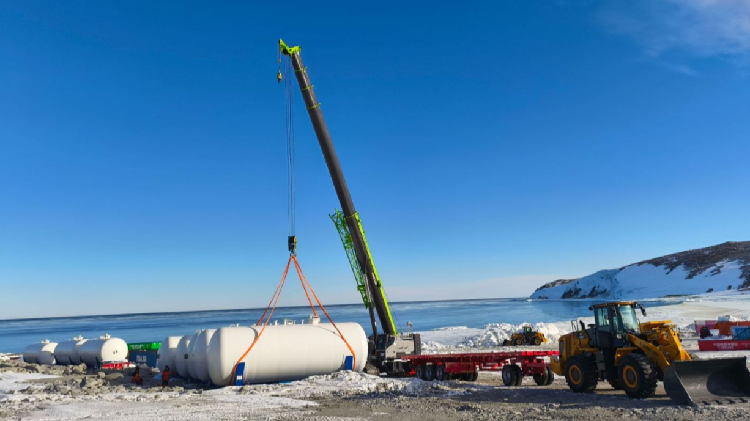Preparatory Team for China's 41st Antarctic Expedition Arrives at Qinling
China's 41st Antarctic expedition has commenced, featuring a 34-member preparatory team that has reached Qinling Station, the nation's fifth research facility in Antarctica. This team's primary objective is to enhance the station's operational capacity in anticipation of the main team's arrival, which will undertake infrastructure development, climate studies, and foster international collaboration in this remote area.

Their efforts have centered on making the station functional again by restarting essential machinery and reactivating the power supply. They have successfully brought three excavators, two loaders, and two 100kW generators back online, ensuring that everything is ready for the mission ahead.
Organized by the Ministry of Natural Resources, the 41st Antarctic expedition commenced on November 1 and utilizes three vessels: the research icebreakers Xuelong and Xuelong 2, alongside the cargo ship Yong Sheng.
The goals of the expedition include infrastructure development, conducting studies on climate change, and promoting international collaboration in the demanding environment of Antarctica.
Qinling Station was officially inaugurated in February 2024 and is strategically located on the Ross Sea coast, marking China’s first Antarctic research station facing the Pacific sector.
With a total area of 5,244 square meters, the station features a unique design inspired by the Southern Cross constellation—paying homage to Zheng He, a famous admiral, mariner, and diplomat from the Ming Dynasty, who used this constellation for navigation during his legendary maritime expeditions to the Western Seas.
James del Carmen for TROIB News
Discover more Science and Technology news updates in TROIB Sci-Tech












